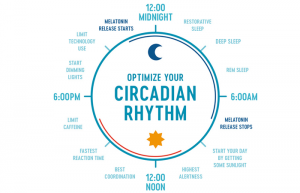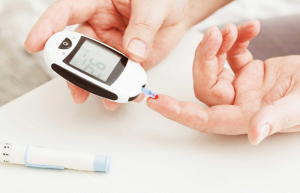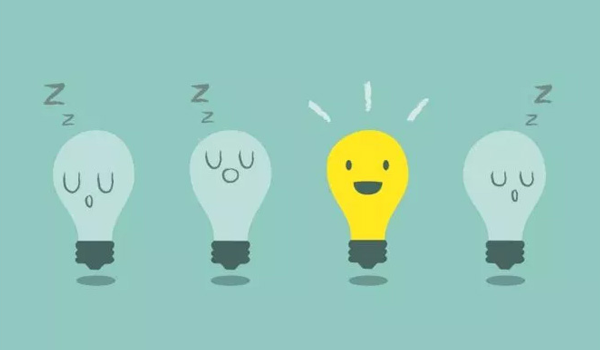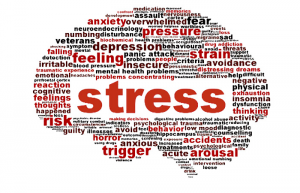Sleep – the underrated superpower

Why you need it
Everyone is aware or has been told in the past that getting enough sleep is vital. In a nutshell – sleep recharges your batteries. While there are several theories on why we sleep, here are the important reasons for why we go to sleep:
-
Conserve energy – we need less of it when we sleep
-
Reorganise our memories and information that we’ve processed during the day
-
Physical recovery – while we sleep our body builds and regenerates specific tissue and nerve cells, neutralises neurotoxins and renews biochemical processes
-
Psychological recovery – our brain recovers
If you live until 90, on average you will be roughly spending 32 years worth of time sleeping. It is therefore very important that you do what you can to ensure you get quality sleep, which will ensure (contrary to what many workers with an active career may believe) optimal functioning of your body and brain the next day.
The phases of sleep
Phase 1 – brain activity becomes less, this is the moment in which we drift to sleep (5-10 mins)
Phase 2 – the muscles relax, body temperature lowers and the pulse slows down, our body gets ready for deep sleep
Phase 3 and 4 – the body is in deep sleep and in these stages is where the recovery processes happen
Phase 5 – REM (Rapid Eye Movement) sleep, in this phase we dream the most, our muscles are paralysed and our breathing is faster (first REM phase is around 10 mins, then each next one is longer)
A good night’s sleep can be summed up as being uninterrupted, deep and intensive.
The body clock
 Our bodies function by something called circadian rhythms. Circadian rhythms are 24 hour long cycles that are representative of specific biological activities such as our digestive system, body temperature, the central nervous system, certain hormone secretions and sleep. The circadian rhythm that determines whether we are awake or asleep is mainly regulated by light levels.
Our bodies function by something called circadian rhythms. Circadian rhythms are 24 hour long cycles that are representative of specific biological activities such as our digestive system, body temperature, the central nervous system, certain hormone secretions and sleep. The circadian rhythm that determines whether we are awake or asleep is mainly regulated by light levels.
Inside our brain is a small part called the Suprachiasmatic Nucleus. This is our body clock. It is responsible for the hourly regulation of all the main processes in the body. Our bodies love routine and create conditions for specific functions, depending on the internal clock. The whole combination of our bodily process is called a biorhythm. When you don’t stick to your routine and interrupt your biorhythm, your body can’t operate optimally.
The effect of sleep deprivation
Undersleeping has many negative effects and it is important that you understand them:
Higher appetite – a single night of undersleeping (4 hours) is enough to raise our feeling of hunger by 24%. As well as this, people who sleep less than 7 hours a day experience 26% less satiety after breakfast. Chronic undersleeping affects hormones (leptin and ghrelin) in our body responsible for our feelings of hunger. If you are underslept, the chances are you will feel more hungry, which increases the likelihood of you choosing to eat higher quantities of sugary foods during the day. In the long term, an overconsumption of high sugar foods can create problems with oral health, such as tooth decay.
Weakens immune system – not sleeping enough for even one night can lower your body’s immune response. There are tons of different bacteria in the mouth, some of which feed off of plaque on your teeth and wear down the enamel. A weakened immune system compounded with these bacteria can lead to the start of gum disease development.
Weakened enamel – the enamel can wear down, crack and chip over time if it isn’t cared for. Through sleep your body can repair these damages. Sleep repairs tissues by distributing phosphate and calcium through the body to strengthen bones and teeth.
Increased risk of diabetes – sleep deprivation is often an overlooked, but significant risk factor for type 2 diabetes. This is due to lack of sleep causing a disbalance in the body’s hormonal levels, more specifically less insulin (the hormone that controls your blood sugar levels) is released after you eat. The body also secretes more stress hormones (cortisol), helping you stay awake but preventing the proper functioning of insulin. All this combined with the increase in appetite leads to too much glucose in the bloodstream, which increases the risk of diabetes development. This effect has been observed in cases of getting less than 6 hours of sleep per night, particularly with a decrease of deep sleep.
 Increased risk of heart disease – sleep deprivation causes upset in underlying health condition and biological processes like glucose breakdown, blood pressure and inflammation, which increases the risk for cardiovascular disease and coronary heart disease. Patients with sleep apnea (a condition causing frequent waking through the night) often are susceptible to heart problems, because the lack of deep sleep causes chemicals to be released that prevent the body from entering the long periods where heart rate and blood pressure are lowered.
Increased risk of heart disease – sleep deprivation causes upset in underlying health condition and biological processes like glucose breakdown, blood pressure and inflammation, which increases the risk for cardiovascular disease and coronary heart disease. Patients with sleep apnea (a condition causing frequent waking through the night) often are susceptible to heart problems, because the lack of deep sleep causes chemicals to be released that prevent the body from entering the long periods where heart rate and blood pressure are lowered.
Effect of sleep deprivation on children – ADHD in children has been linked with a variety of sleep problems. Studies have shown that children with ADHD had higher rates of daytime sleepiness, and that around 50% of children with ADHD had signs of sleep disordered breathing, in comparison to only 22% of children without ADHD. Research also suggests that restless legs syndrome and periodic leg movement syndrome are also common in people with ADHD.
All these effects combine together to cause an overall increased likelihood of a shortened lifespan in most sleep deprived individuals.

How to get better sleep
Here are some areas you can address to help your body prepare better for rest:
Routine – our bodies thrive on consistency and will always strive for homeostasis. Because of this it is a very good idea to aim to go to bed and wake up around the same hours every day. There’s no specific times you have to do this (as long as you get your sleep at nighttime and not daytime) – 12.30 is just as fine as 10.30, but aim to be consistent in going to bed in the same window of 30-60 minutes each day.
Lighting – use a program on your laptop that lowers the blue light on your screen during the later hours of the day (f.lux and iris are two examples). Most smart phones already have a built in option to do this and you can set a time for it to turn on and off. Some other things to try are spending more time in the sunlight during the day, and turning off all electronic devices and dimming the lights in your room (e.g. only have the bed lamp on) 30-40 minutes before you go to bed.
Caffeine – for most people drinking 1-3 cups of coffee a day in the early hours of the day is fine. Restrain yourself from drinking anything caffeinated after around 2-3pm (herbal tea is fine because it contains certain amino acids that neutralise the caffeine in it and has a relaxing effect). An interesting experiment you can try, to find out what your caffeine tolerance is – stop any caffeine consumption for a week (this removes any built up resistance to it in the body), then try drinking a cup of coffee in the late afternoon, then do it again for a couple of days – keep a diary of how well you slept, how long and your levels of rest and energy. Then repeat with two cups, etc. You should be able to get a rough idea of what your tolerance is. Keep in mind as well the negative effect overconsumption of coffee can have on your teeth – it makes the teeth stickier and allows for bacteria in your mouth to turn sugar into acids that damage the enamel for a longer period of time. Have a glass of water after every time you drink coffee to wash it down properly from your teeth. Chocolate and sweets
 Stress – managing your stress levels can have a significant effect on the improvement of
Stress – managing your stress levels can have a significant effect on the improvement of
your sleep. However, as we all have different lifestyles and things happening to us, it can be difficult to give general advice. Meditating for 10-15 minutes a day has shown in research that it can have positive effects in reducing stress levels, lowering of pulse and cortisol levels, strengthening of the immune system, better memory and concentration. There are many methods to do this, and many apps available on smartphones to help you with it – just remember, it doesn’t have to be perfect! Simply sitting down and focusing on your breathing with closed eyes for 5 minutes can be of use! One book recommendation on managing stress is the bestseller “Why Zebras Don’t Have Ulcers” by Robert Sapolskiy. As well as this you can educate yourself, in your spare time, on managing stress with this list of TED talks: https://www.ted.com/playlists/315/talks_to_help_you_manage_stress
Alcohol and nicotine – alcohol can play a massive part in social aspects, so you don’t have to go cold turkey. Excessive alcohol consumption disrupts the REM phase and shortens the time you sleep, however a glass of wine before bed could in some cases relax you enough that you fall asleep fast without disrupting the sleep phases. Placing a sensible limit (1-2 units) on how much you consume can give you enough leverage to still enjoy social gatherings (especially if you have them often) without going overboard with drinking. In general, it is recommended that you stop smoking for overall health benefits, and you are probably aware of this too. Nicotine can have an effect similar to that of alcohol. Furthermore, chain smokers are more likely to develop sleep apnea. Smokers can also wake up during the night more, and overall spend less time in deep sleep.
Exercise – this is one of the most effective ways to handle problems with sleep. Research has shown that physical exercise has positive effects on the time taken to fall asleep, the quality of sleep and quantity of sleep on patients suffering from insomnia! However, exercising late in the evening can have a negative effect on sleep quality because in most people exercising stimulates the release of certain hormones (adrenaline, norepinephrine and cortisol) that keep us awake. If you can, do your workouts during the earlier parts of the day up to the late afternoon.
Catching up on lost sleep – if you have been missing out on sleep for a long period, then you have built up a significant sleep debt. It is possible to rebalance this though – start of by adding an extra 2 hours of sleep on the weekends, and the easiest way to do it is by going to sleep when you’re tired and allow yourself to wake up naturally (no alarms). Expect to sleep 10 or more hours a night at first. This will gradually decrease to normal sleep time after your body has readjusted.
 Creating a simple bed-time ritual before sleep is an effective habit to have. One example can be:
Creating a simple bed-time ritual before sleep is an effective habit to have. One example can be:
-
All electronic devices are turned off 30 minutes before bed
-
Light in the room is dimmed as much as possible
-
Take care of anything quick that needs to be prepared for the next day e.g. clothes for work
-
Brush teeth and floss
-
5-10 minutes meditation
-
Read a book for 15-20 minutes
Some other ideas that you can try before going to bed are:
-
Massage – using a foam roller on yourself, you can relax tensed up muscles before heading to bed
-
Sex – intimacy with your partner can have a significant relaxation effect
-
Warm shower – this raises body temperature, but can have a relaxational effect before going to bed, though this has been mainly observed with elderly people
-
Journaling – often we have a lot on our head when we go to bed. Simply writing down everything we are thinking about from what happened today to what all the things we have to do tomorrow, to what we’re worrying about in the future, can have a positive effect on calming your mind and getting rid of stress before sleeping.
Whatever routine works for you, as long as you do it regularly and stick to it (following the above advice) then you are likely to experience improvement in your sleep. Remember that sleep is one of the most important things for your health.
